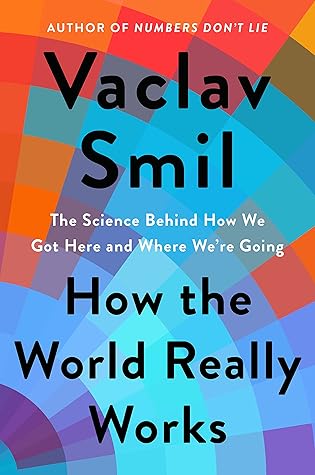More on this book
Community
Kindle Notes & Highlights
by
Vaclav Smil
Read between
August 6 - September 1, 2025
Most modern urbanites are thus disconnected not only from the ways we produce our food but also from the ways we build our machines and devices, and the growing mechanization of all productive activity means that only a very small share of the global population now engages in delivering civilization’s energy and the materials that comprise our modern world.
In 2019, the world consumed about 4.5 billion tons of cement, 1.8 billion tons of steel, 370 million tons of plastics, and 150 million tons of ammonia, and they are not readily replaceable by other materials—certainly not in the near future or on a global scale.[5]


